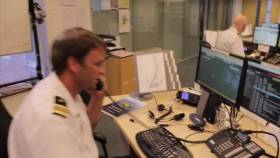Displaying items by tag: New SAR Plan
Shane Ross, the Minister for Transport, Tourism and Sport has published a new National Search and Rescue Plan aimed at placing Ireland at the forefront of international best practice.
The plan also addresses some key lessons arising from tragic accidents involving Search and Rescue services in Ireland over the last three years. The new plan replaces the existing National Maritime SAR Framework dating from 2010. It will be the baseline guide for all Search and Rescue (SAR) organisations in Ireland. It underpins agreed methods of coordinating and conducting all SAR activities in Ireland and provides for a robust governance and oversight regime for SAR into the future.
Minister Ross said: “This review and the resulting National SAR Plan is about significantly improving the manner in which the State provides and oversees Search and Rescue. Ultimately, our objective is to make our SAR service better and safer for all those involved and ensure that we have clear guidelines and practice for those who have vital roles and responsibilities to fulfil.”
The Minister continued: “This new plan takes account of the recommendations arising from a succession of Reports and Reviews in relation to Search and Rescue in Ireland over the last year, including the AAIU’s Interim Statement (March 2018), the AQE Report on a “Review of Oversight of Search and Rescue (SAR) Aviation Operations in Ireland” (September 2018) and the Marine Casualty Investigation Board Report (MCIB) into the fatal accident in Kilkee involving a Coast Guard volunteer (December 2018).”
He said: “It is vital that we learn the lessons from tragic accidents such as Kilkee and Blacksod and that we nurture and promote a world class Search and Rescue service.”
A key conclusion of the SAR review, which underpins the new National SAR Plan (NSP), is that roles, responsibilities and inter-dependencies within the overall SAR system need to be clear, explicit and understood by all those concerned. A new Governance and Oversight chapter in the plan sets out these roles very clearly, from strategic, tactical through to operational levels. It also recommends SAR stakeholders meet at least annually to review the plan.
The NSP delivers on a new mechanism of assurance in relation to standards and practices and oversight of the overall SAR system. This will include the creation of a support network to assist those involved in search and rescue to develop minimum standards and practices and to embed principles of continuous improvement and safety within their organisations. It also creates a new SAR Regulators’ Forum, a unique initiative which brings transport regulators in the Search and Rescue domain together to exchange good practice and seek to improve the overall system assurance mechanisms.
A new National SAR Committee has been created with renewed terms of reference which underpins its role in providing strategic coordination, guidance and leadership for Search and Rescue. This group will monitor the performance and adequacy of the SAR system and advise on any necessary improvements. It will be chaired by Sir Alan Massey – ex CEO of the UK’s Maritime and Coastguard Agency. Its members will include senior representatives from the Coast Guard (IRCG), Irish Aviation Authority (IAA) and An Garda Síochána (AGS), their parent Departments and other strategic partners in both the State (Departments of Defence, Health and Local Government) and the voluntary SAR sector (RNLI).
The SAR Review report also includes an implementation plan for a new “virtual” Joint Rescue Coordination Centre (JRCC) model. This was another key recommendation in the AQE Report. The new model will secure additional collaboration between the Aviation Rescue Coordination Centre (ARCC), which is managed by the IAA, and Marine Rescue Coordination Centre (MRCC), which is managed by the Coast Guard. This will greatly enhance the overall SAR system. Utilising enhanced technologies and greater collaboration, the new JRCC will capitalise on the strengths of the current Aeronautical RCC and Maritime RCCs and ensure a more coherent response.
With regard to Marine Casualty Investigation Board (MCIB) recommendations included in the review process, the new Search and Rescue Plan acknowledges the on-going work of the Irish Coast Guard (IRCG) in developing an accredited safety management system. The IRCG’s new Standard Operating Procedures and guidance material relevant to the MCIB report were subject to international peer review (involving Canada, New Zealand and Sweden) and are being modified to reflect best practice in relation to boat launching and the transition from search and rescue to search and recovery phase of IRCG operations.
In conclusion, Minister Ross said: “I would like to convey my thanks to those Departments and agencies who participated in the review process. I would particularly like to thanks Sir Alan Massey for his leadership and expertise through this seven month review process. I am very pleased with what has been achieved in such an ambitious timeframe since the publication of the AQE Report. We must now endeavour to build on this momentum and the ambition in this report which is to make Ireland’s SAR service “best in class” internationally – and in doing so, honour the memory of those who have lost their lives in the service of others.”






























































